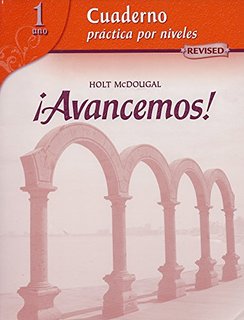
All Solutions
Page 234: Leer A
– quehaceres – chores
– preparar el desayuno – prepare breakfast
– lavar los platos – wash the dishes
– hacer la cama – make the bed
– limpiar el cuarto – tidy up the room
– barrer el suelo – sweep the floor
– cortar el césped – mow the lawn
Since it is the mother who is telling her daughter what to do, the verb will match the second-person singular.
Example: (Tú) Lava los platos.
((You) Wash the dishes.)
Example: Hay que lavar los platos.
(The dishes should be washed.)
Remember that “hay que” is followed by an infinitive.
(In the kitchen:)
– Hay que barrar el suelo dos veces.
(The floor should be swept two times.)
(In Irma’s room:)
– Hay que hacer la cama.
(The bed should be made.)
– Hay que limpiar el cuarto.
(The room should be tidied up.)
(Outside:)
– Hay que cortar el césped.
(The lawn should be mown.)
Do you think it’s good to help with house chores? Why?
(I think that it is very good to help with house chores because it is important to live in a clean space. I also think that we are more organized and responsible.)

